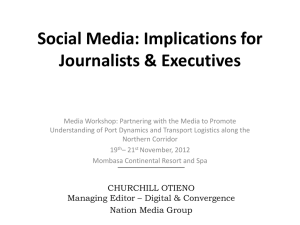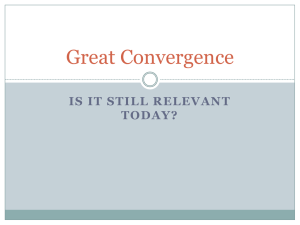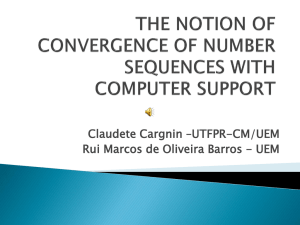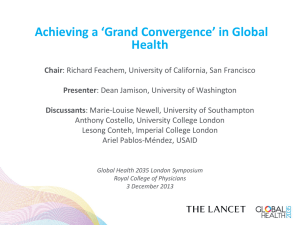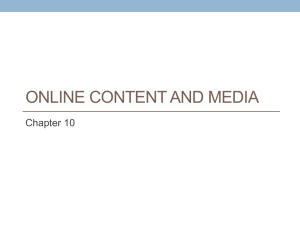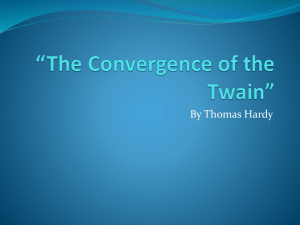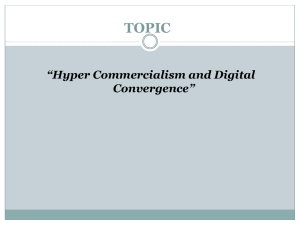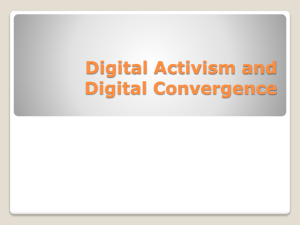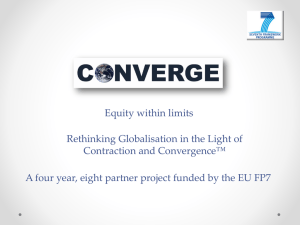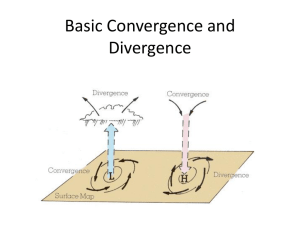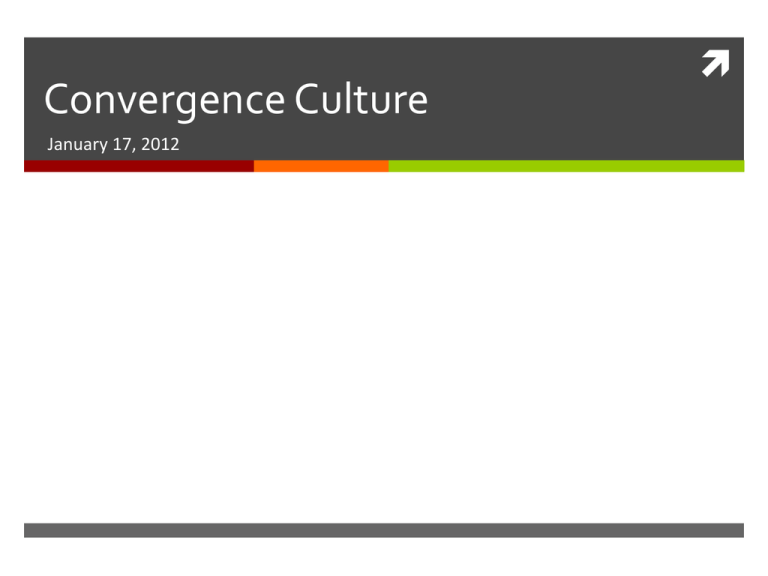
Convergence Culture
January 17, 2012
reminders
Twitter: 10% of your grade. Use it.
Blog: eventually (see schedule)
Do the readings. Really.
Projects:
1) exam
2) group project on social media activism
3) report on best business practices of/with social
media,
4) Final exam or remix project (choice is yours)
Last Week: Web 2.0 Design Features
The long tail
Some rights reserved
Data-driven applications
Perpetual beta
Users add value
Cooperate don’t control
Network effects by default
Software beyond a single
device
web
as
platform
what does this mean?
Pop Quiz
Question 1: What example does Jenkins start his
Introduction with?
Question 2: Given the readings you’ve done for
today, how would you say Jenkins defines
convergence culture?
Convergence is…
By convergence, I mean the flow of content across
multiple media platforms, the cooperation between
multiple media industries, and the migratory
behavior of media audiences who will go almost
anywhere in search of the kinds of entertainment
experiences they want.
Types of Convergence
Convergence is a word that manages to describe
technological, industrial, cultural, and social
changes depending on who’s speaking and what
they think they are talking about.
Media convergence is not just a technological
process; it is primarily a cultural phenomenon that
involves new forms of exchange between producers
and users of media content.
•By convergence, I mean the flow of content
across multiple media platforms, the
cooperation between multiple media
industries, and the migratory behavior of
media audiences who will go almost
anywhere in search of the kinds of
entertainment experiences they want.
•
•Convergence is a word that manages to
describe technological, industrial, cultural,
and social changes depending on who’s
speaking and what they think they are
talking about.
• Media convergence is not just a
technological process; it is primarily a
cultural phenomenon that involves new
forms of exchange between producers and
users of media content.
group work
Given the definitions of
convergence that Jenkins
lays out, come up with 1
really good example of
convergence culture.
Be prepared to share this
example AND explain to us
how and why this falls
under Jenkins’ definition of
convergence.
Going where the consumers are
The power of the broadcast networks now co-exists
with the power of the social networks. In some
ways, this has pushed broadcasters to go where the
consumers are, trying to satisfy a widespread
demand for the media we want, when we want it,
where we want it, demand for the ability to actively
participate in shaping the production and
circulation of media content.
Examples? Is this a useful model?
information.information.information.information.information.information.information.
overload?
The interviewer asks Jenkins:
Participation in a culture of convergence requires
the development of certain cognitive capacities.
Multitasking, for example, is a skill that young
people, the digital "natives," seem more
comfortable with than those of older generations,
who lived in less complex media environments and
were expected to think linearly. In the current media
environment, what do we lose and what do we gain
in terms of cognitive skills? And can new ways of
learning co-exist with old forms of knowledge?
information.information.information.information.information.information.information.
overload?
Jenkins answers:
The question is how to balance the new skills with
the old, how to embrace the capacity of the young
to process multiple channels of information with the
values of contemplation and meditation, which were
the virtues of older forms of learning.
Is this possible? How so?
Jenkins speaks for himself
http://www.youtube.com/watch?v=AFCLKa0XRlw&f
eature=player_embedded#!
Think about the takeaways here and how you might
connect them w/ the readings from last week and
the readings for Thursday.
(ps. For Thursday, see schedule. READ Shirkey and
deCastella)

